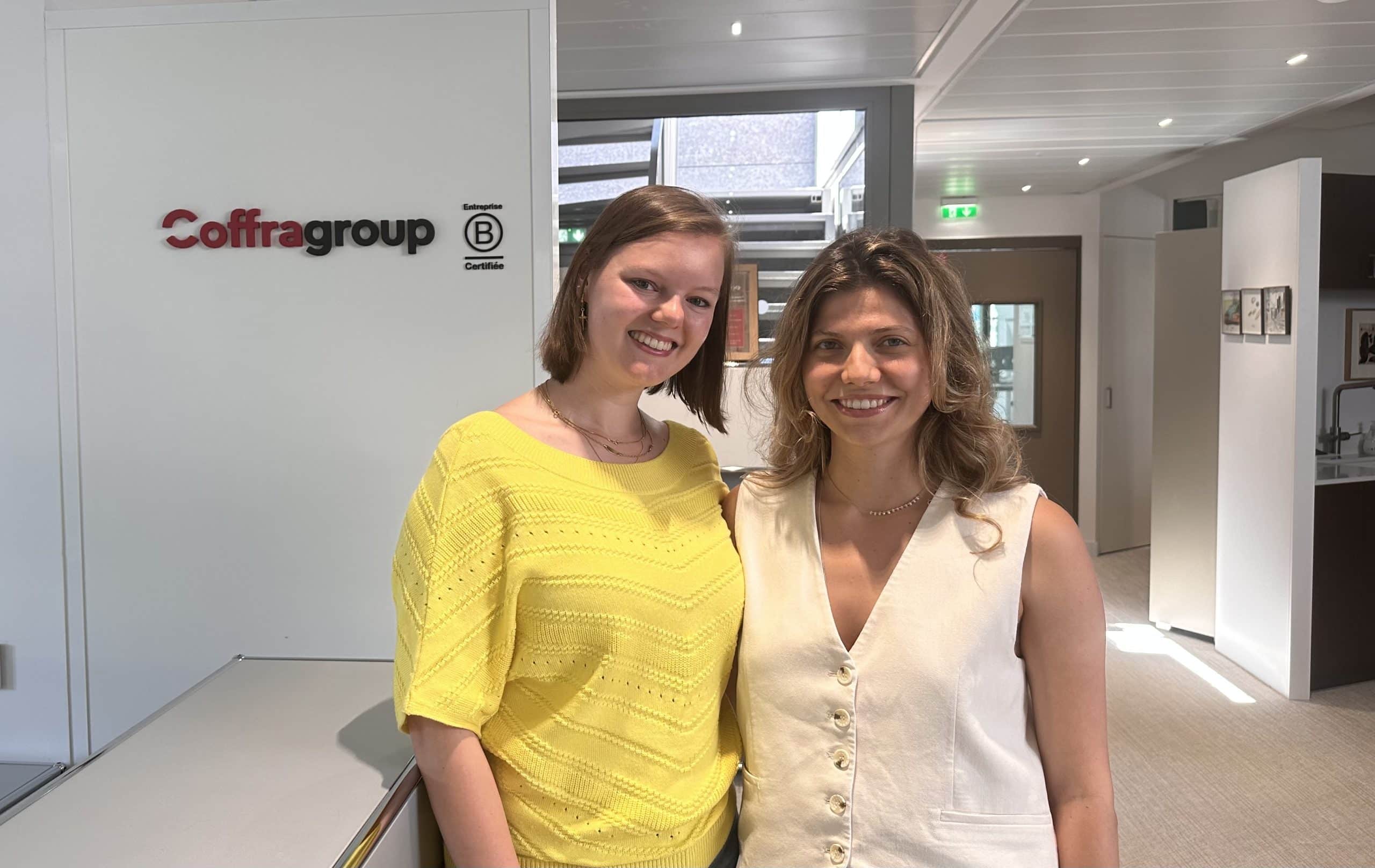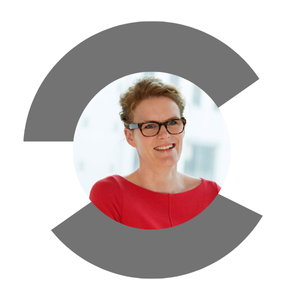Vlerick & Coffra group Partnership: Insights on the Vlerick In-Company Project and International Strategic Learning
I always hope students see the ICP as a learning opportunity that helps them grow. In this project, they learned that with the right mindset, you can move mountains.

1. Could you tell us a bit about how the partnership with Coffra group came about?
KF: The partnership with Coffra group goes back to the Moore Global Corporate Finance network. Christoph Schlotthauer and I know each other from the cross-border mid-market M&A report that we publish together on an annual basis for several years already. This collaboration has always been very inspirational due to an open and transparent way of communicating, a trustful relationship where everybody involved in the project loves to be challenged, is curious about the outcome, encourages the other parties to go one step further but also is there to help each other. For me, the Moore Global Corporate Finance Partnership but especially also this In-Company project with Coffra group clearly reveal the mutual benefits of a collaboration between a business school as Vlerick and companies like Coffra group: as a business school, we do academic research but are normally able to translate this academic research into business realities. We bring fresh knowledge and perspectives, analytical skills and ideally a neutral mindset to find solutions for real-life business challenges. At the same time, the discussions and interactions with the company help to ensure that we do not get lost in the ivory tower. We get the direct input from the companies of what really matters these days. What I appreciate about the partnership with Moore Global Corporate Finance and Coffra group respectively is that we value each other’s knowledge, expertise and experience – it is a complementary approach, where all parties know what their strengths but also their limits are. From every conversation I have with Christophe and his colleagues, I get new inputs that bring my own research and thinking a step further.

2. in your view, what is the true pedagogical value of the In-Company Project within the MIMS program?
KF: The idea of the In-Company project is to put the knowledge students have acquired throughout their academic year at Vlerick into practice. But actually, the learning goes way beyond applying frameworks and techniques to real life business situations. The In-Company projects are a reality check and prepare our students for their professional life after graduation, due to several reasons: first, these projects are no longer “just” cases they read and work on in class. The projects are real-world business challenges; there is a company with expectations looking for a solution and our students need to deliver these solutions. It gets way more concrete than just theoretically thinking and discussing about how the company could have reacted. Second, throughout the year at Vlerick, we try to prepare our students for their real-life job after graduation in various aspects, not only when it comes to course content, but also in terms of management skills like time and project management, communication skills, and professional behavior. The In-Company projects are then often the proof of the pudding that is in the eating. And finally, like in every real-life situation, there are unforeseen challenges: data is not always easy to find, people have restricted agendas and are not always available, expectations might not be met, cultural and communication issues suddenly are not something you have heard of, but something you might experience yourself. To cope with these challenges but also to get them solved in the end, are invaluable learning opportunities.

3. How do you help students approach the strategic and often international dimensions of their projects?
KF: The overreaching aim of our Masters in International Management and Strategy (MIMS) program, is to prepare our students for an international career in strategic roles. To reach this goal we rely on multiple building blocks: First of all, it is about the curriculum. Courses like Corporate and Business Strategy, International Management, Global Operations Management, Managing HR in the Global Firm, Challenges of the Globalized World and Strategic Management of Sustainability are just examples of core courses of our program. But we also focus a lot on management skills and personnel development. This is why courses like Strategic Communication Skills, or the Equity, Diversity and Inclusion track are important pillars of our core curriculum. Second, we follow a very hands-on, application-oriented learning (and yes, we call it learning, not teaching) approach. Guest speakers, workshops with companies, case-based teaching, simulations, company visits are integral parts of our learning approach. Two international study trips (one in Europe and one oversee) ensure that students do not only hear about international business in our classroom but interact in international business settings from various cultural backgrounds. During these trips we focus on exposing our student to various sectors, industries, and kind of companies to discuss strategic topics, like growth opportunities, digitalization, the role of AI on their business model or the sustainability transformation from various angles and perspectives. Third, the group itself is very international, normally we have more than 15 different nationalities in a group of 45 students. Just by interacting on a daily basis our students are exposed to very different cultures, ways of working, communicating and interacting. This, without any doubt, adds to the preparation for an international career.

4. From your perspective, what do you expect from a company partnering with Vlerick for an In-Company Project?
KF: Ideally, there is a balance between knowing what you, as a company want and still giving the students enough freedom to bring in their own knowledge and approach to answering the project questions. This is not easy but is actually what I observed this year with the project with Coffra group. While Coffra group had very clear expectations and a clear task to be solved, they trusted the students to solve the task. Coffra group was there to help, support, to answer questions and steer the students. But Coffra never tried to impose a solution. They always encouraged the students to go their own way and were very open to the students’ suggestions and input. This is actually something that I also experienced already during our Moore Global Corporate Finance Partnership: we know each other, we trust each other, we rely on each other’s competencies, but we never try to interfere or limit the other parties involved in the project. Coming back to the In-Company projects: companies should not see these projects as an extended workbench. If the company imposes too much of their own approach and ideas, you will miss the opportunity to get some new, fresh ideas and learn from the project yourself. Still, by providing too much freedom and no guidance at all the company might risk getting less concrete or too idealistic results. It is a delicate balance, but preparation and organization are half the battle. Clearly defining the scope of the project together with experienced Vlerick faculty and defining a way to interact often brings the project to another level. This is what we experienced this year with Coffra group.

5. Can you share an example of a particularly impactful ICP experience — either for the students, the company or yourself as a mentor?
KF: What made that project stand out and lead to an extremely impactful ICP experience was the high involvement from Coffra group side. It already started with the kick-off meeting, that lasted almost two hours, was very well prepared and structured and helped the students to get directly fully immersed in the project. The scope of the project, expectations as well as the way of interaction were clearly defined from the beginning. And it went on with the very close interaction with Christoph and his team. Who can say that he or she has at least weekly (if not even more) meetings with the CEO to discuss the progress of the project and clarify open questions? These interactions clearly brought the project to another level. I am sure, it is an experience the students will benefit from forever. But also, for me as a mentor, it was an impactful experience. Seeing this high involvement from Coffra group side was of course also motivating for me. And again, during every meeting and workshop we had, there was something to learn about also for me.
6. Finally, what do you hope your students take away from the ICP experience — not just professionally, but also in terms of mindset and leadership?
KF: In general, I always hope that no matter how challenging the ICP is, our students see it as a learning opportunity that makes them grow. And in this particular ICP, I am sure that our students learned that with the right mindset you can move mountains. Even if you do not bring all the necessary knowledge and skills from the beginning, see it as a learning opportunity, embrace it as a challenge, and find you own way. Our students were extremely motivated, always used their brain first and relied on what they have learned throughout their year at Vlerick. But they also dared to ask for help and reached out to people to find answers to their questions. I hope, they are aware that this is not standard and that they can be proud about themselves.

As part of our ongoing commitment to supporting education and nurturing young talent, Coffra group welcomed Elise Damman and Stanimira Getova, two final-year Vlerick Business School students from Belgium, for internships within our teams.

